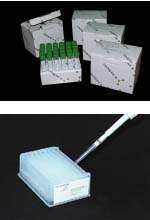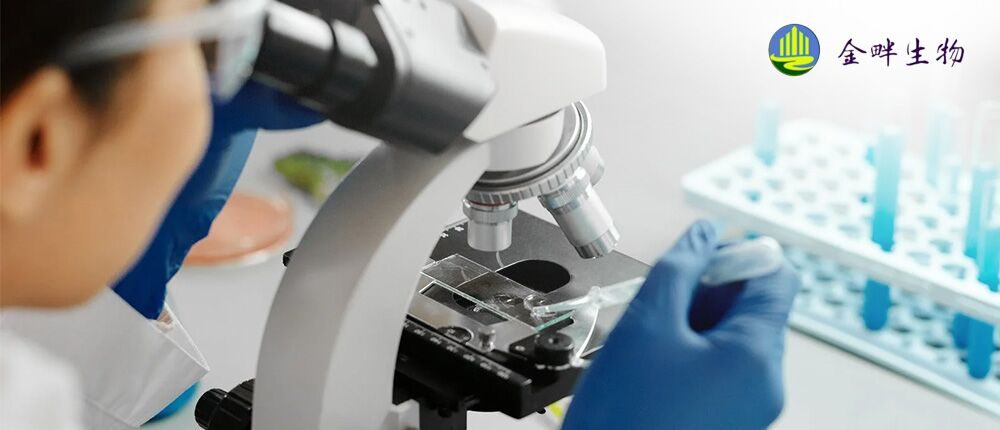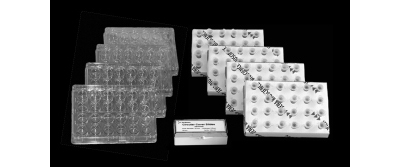JBS -Pi-PEG-MiTeGen可溶性蛋白质筛选
上海金畔生物代理MiTeGen品牌蛋白结晶试剂耗材工具等,我们将竭诚为您服务,欢迎访问MiTeGen官网或者咨询我们获取更多相关MiTeGen品牌产品信息。
JBS -Pi-PEG
The Pi-Screens were developed at the MRC Laboratory of Molecular Biology (Cambridge, UK) for efficient crystallization screening of soluble proteins (Pi-minimal Screen) and integral membrane proteins (Pi-PEG Screen). The approach is based on incomplete factorial design.
JBS-Pi-PEG
Pi-Screens 是在 MRC 分子生物学实验室(英国剑桥)开发的,用于对可溶性蛋白质(Pi-minimal Screen)和整合膜蛋白(Pi-PEG Screen)进行有效的结晶筛选。 该方法基于不完全因子设计。
Product Information
- Product Description
- Specifications- Screen Conditions
The Pi-Screens were developed at the MRC Laboratory of Molecular Biology (Cambridge, UK) for efficient crystallization screening of soluble proteins (Pi-minimal Screen) and integral membrane proteins (Pi-PEG Screen). The approach is based on incomplete factorial design.
The unique formulation was generated following a strategy named Pi sampling [1] in order to create novel combinations of precipitants, buffers and additives across a standard 96-condition plate layout. Thus, the diversity amongst the crystallization conditions is ideal for initial screening.
The Pi-minimal Screen includes 36 components, i.e. 12 precipitants, 12 buffers systems and 12 salts. Buffers employed in the Pi-minimal screen are buffer systems (acid-base pairs, e.g. HEPES and HEPES sodium salt). Consequently, pH can be adjusted by mixing 2 stock solutions at different ratios during later optimizations.
The efficiency of the Pi-minimal Screen was demonstrated by the crystallization of 10 proteins before its commercialization [1].
The Pi-PEG Screen includes various polyethylene glycol mixtures, additives and buffers covering a pH range from 4,0 – 9,5 and hence is suitable for integral membrane proteins as well as for soluble proteins.
The efficiency of the Pi-PEG screen was demonstrated by the crystallization of a G-protein coupled receptor (GPCR) when quality crystals could not be produced with other commercially available screens [1].
Format
Bulk – 4 x 24 screening solutions in 10 ml aliquots
HTS – 96 screening solutions delivered in a deep-well block, 1.7 ml per well
类别:结晶筛
产品信息
产品描述
规格 – 屏幕条件
Pi-Screens 是在 MRC 分子生物学实验室(英国剑桥)开发的,用于对可溶性蛋白质(Pi-minimal Screen)和整合膜蛋白(Pi-PEG Screen)进行有效的结晶筛选。该方法基于不完全因子设计。
独特的配方是按照名为 Pi 采样 [1] 的策略生成的,目的是在标准 96 条件板布局中创建沉淀剂、缓冲剂和添加剂的新组合。因此,结晶条件之间的多样性是初始筛选的理想选择。
Pi-minimal Screen 包括 36 种成分,即 12 种沉淀剂、12 种缓冲液系统和 12 种盐。 Pi-minimal 筛选中使用的缓冲液是缓冲系统(酸碱对,例如 HEPES 和 HEPES 钠盐)。因此,在以后的优化过程中,可以通过混合不同比例的 2 种原液来调整 pH 值。
Pi-minimal Screen 的效率通过 10 种蛋白质在其商业化之前的结晶得到证明 [1]。
Pi-PEG Screen 包括各种聚乙二醇混合物、添加剂和缓冲液,pH 范围为 4,0 – 9,5,因此适用于整合膜蛋白以及可溶性蛋白。
Pi-PEG 筛选的效率通过 G 蛋白偶联受体 (GPCR) 的结晶来证明,当使用其他市售筛选无法生产高质量晶体时 [1]。
格式
散装 – 4 x 24 筛选溶液,每 10 毫升等分试样
HTS – 96 种筛选溶液以深孔模块形式提供,每孔 1.7 ml
Reference
[1] Gorrec et al. (2011) Pi sampling: a methodical and flexible approach to initial macromolecular crystallization screening. Acta Cryst. D67:463.
Available online at http://journals.iucr.org/d/issues/2011/05/00/bw5391/index.html
PDF Download PDF (356 kB)
Selected Recent Literature Citations of Pi-Screens
- Gorrec (2016) Protein crystallization screens developed at the MRC Laboratory of Molecular Biology. Drug Discov. Today 21:819.
- Ohashi et al. (2016) Characterization of Atg38 and NRBF2, a fifth subunit of the autophagic Vps34/PIK3C3 complex. Autophagy12:2129.
- Omari et al. (2014) Pushing the limits of sulfur SAD phasing: de novo structure solution of the N-terminal domain of the ectodomain of HCV E1. Acta Cryst. D 70:2197
Download technical sheet from below:Pi-PEG Screen L Pi-PEG Screen 96 reagents
For additional questions please call +1 607 266 877 or email [email protected]

